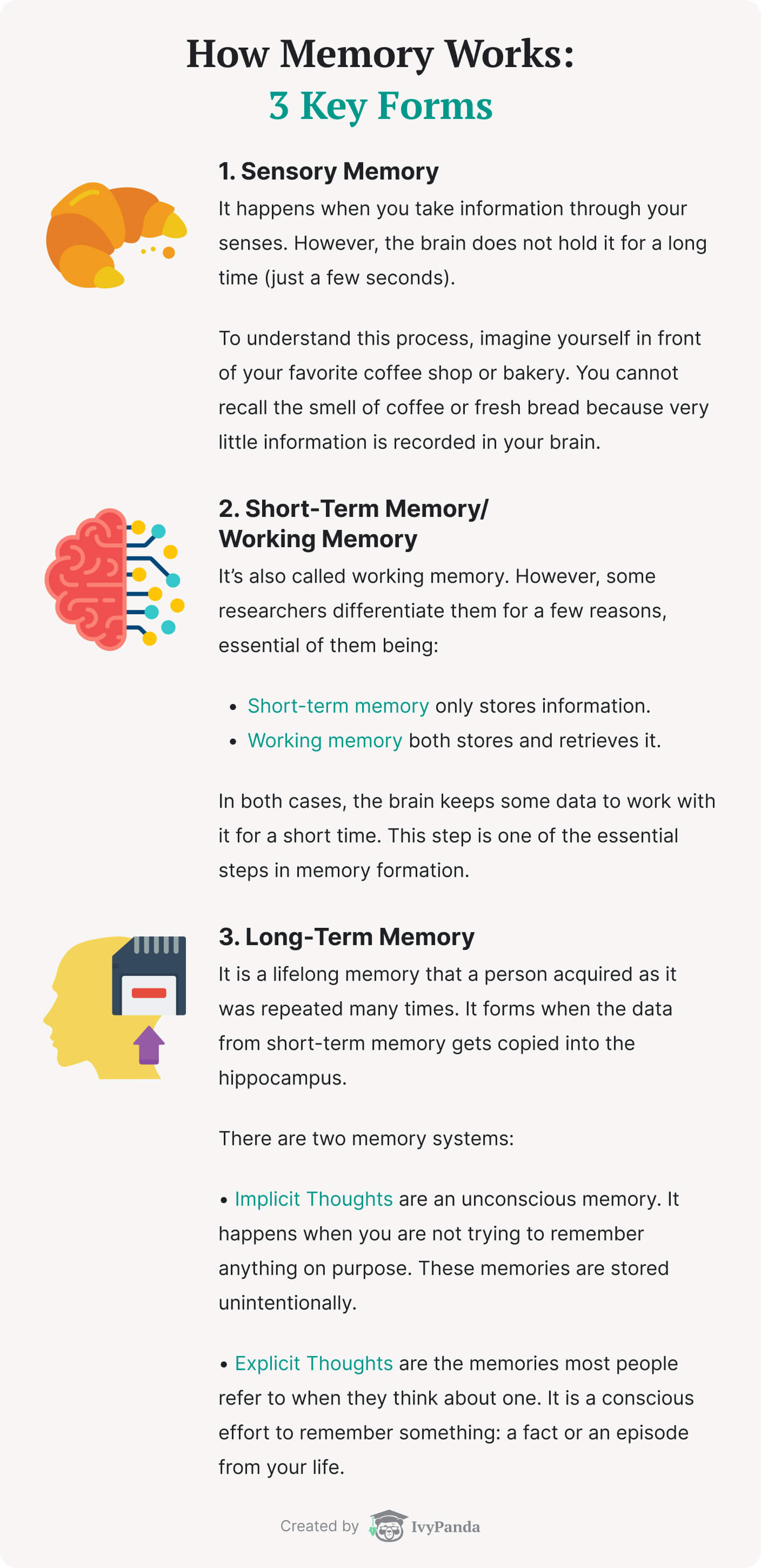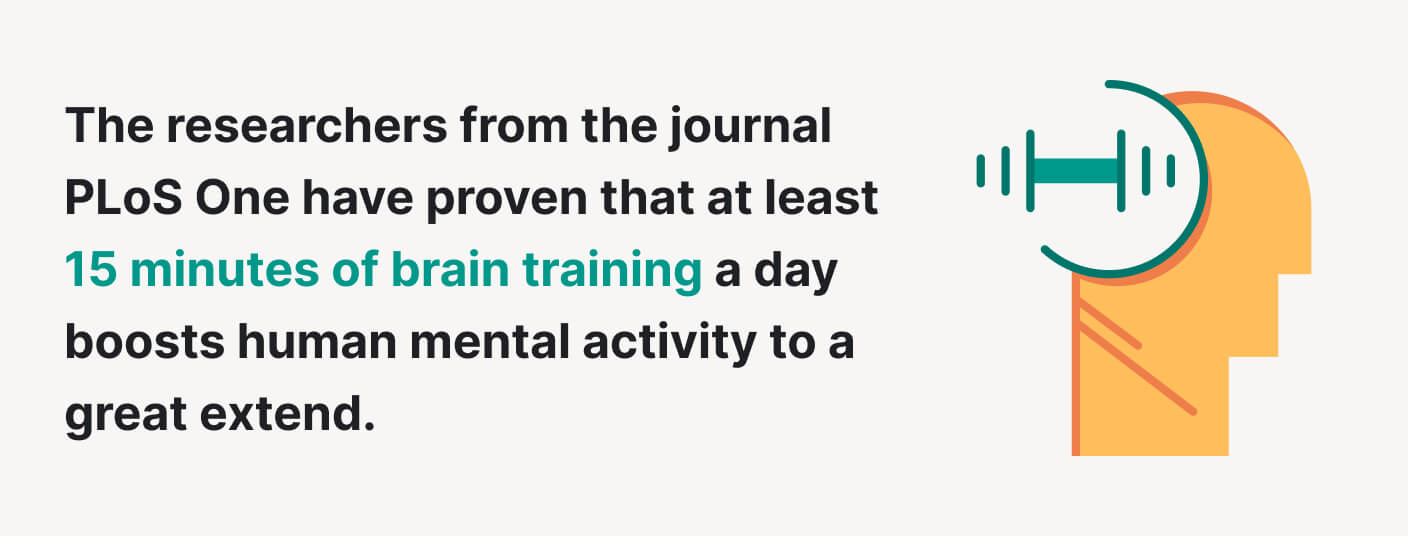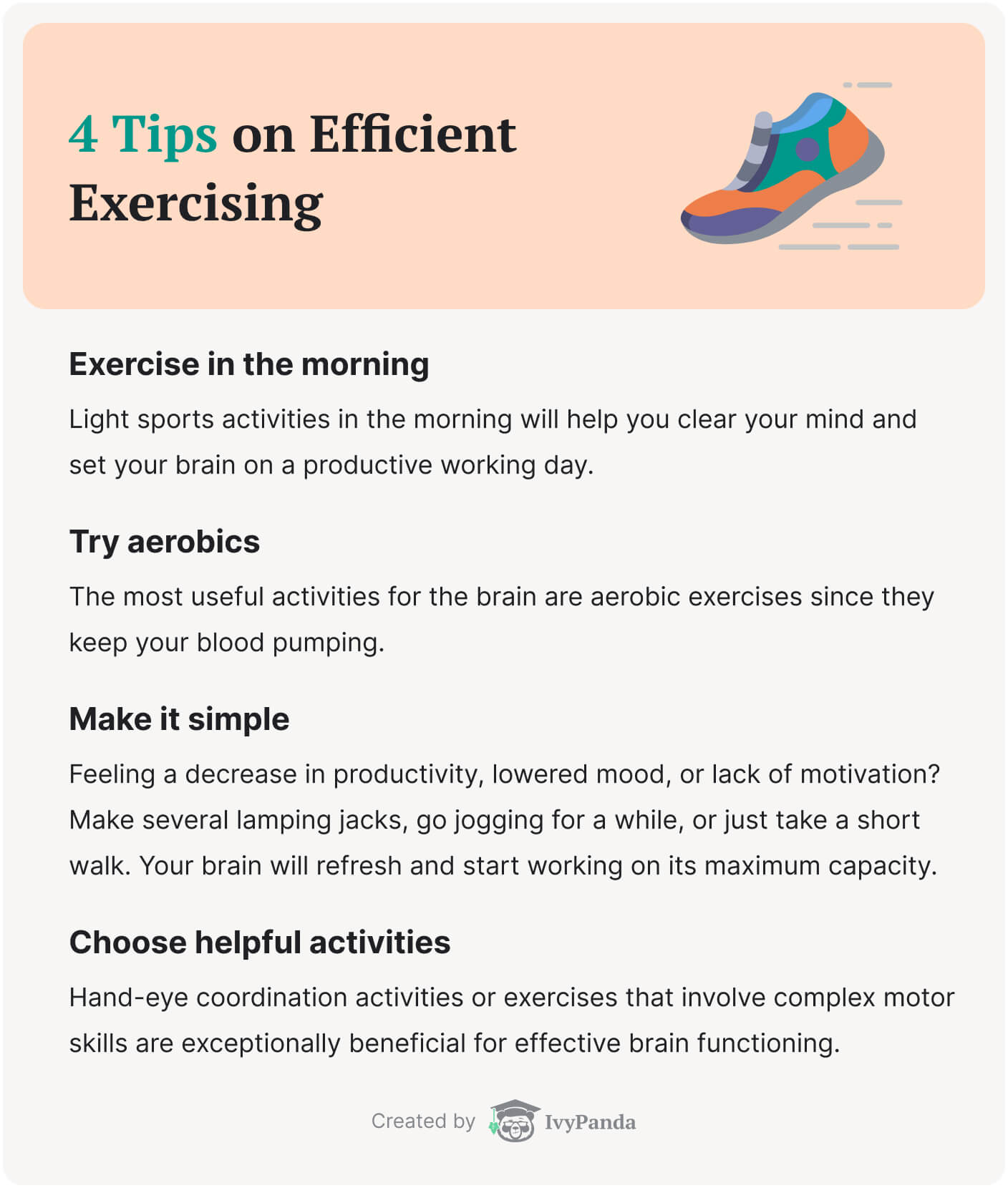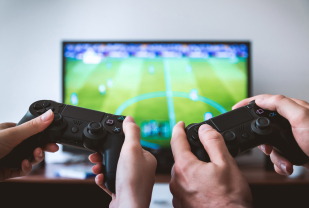In today’s world, students are bombarded with information from the minute they wake up until the moment they fall asleep. This tidal wave of information comes from news outlets, social media, conversations with friends, advertisements, etc. Meanwhile, students also have to process mountains of academic information while completing homework, attending courses, and preparing for exams. Most of their mental energy is spent on the learning and memorizing it.
It can be challenging to process and retain all of the information we encounter every day. So, what can you do to make it easier?
Welcome to our guide to improving your memory! Our experts have gathered these research-tested tips to keep your brain healthy, help it process new data, and train it to retain information for the long term. In this article, you’ll also learn how your memory works and why it’s vital for students to take care of their brains.
🧠 Memory in a Nutshell
To fully comprehend why memory is an essential yet flawed process, we should examine how the human brain works. In this portion of the article, we will explain how our brain encodes new data.
In short, memory is the process of acquiring, storing, retaining, and retrieving information. Human memory is both an act of preserving data and recovering it when needed. It works in the following way:

According to a recently published article, it is as essential to forget things as it is to remember them. Blake Richards and Paul Frankland argue that the purpose of memory is not to maintain information over time but to optimize the brain’s decision-making process. In simple words, if you have too much material stored in your memory, it’s difficult for you to make a decision. Richards and Frankland believe that forgetting increases brain flexibility because the outdated data is erased from the memory.
However, as necessary as forgetting is, it won’t help you prepare for an exam or memorize crucial information from a lecture. Effective learning depends on the quality of your memory.
Students need a good memory for a variety of reasons:
- It helps you to recall facts. The studying process is closely related to memorization. Remembering names, dates, and information is vital for every student who wants to do well in school.
- It allows you to pay attention. Another critical aspect of memory is our ability to stay focused. It may surprise you that these two things are related, but it would be challenging to concentrate during your classes without it.
- It improves your ability to follow directions. To remember what your teacher has assigned, you need to have a good memory. Otherwise, the chances are that you will write an essay instead of a response paper.
- It strengthens your problem-solving skills. Students need to use their memory when they try to solve an equation. Math, reading, and other subjects require it for problem-solving.
- It helps you take notes. You need to remember key points to record them. Without a good memory, you won’t be able to keep track of what your teacher said during a lecture.
Some students remember things with ease, but not everyone has a perfect working memory. If you have difficulties retaining information, trouble with following instructions, and a hard time taking notes, you might have poor functional memory skills. In the next section, you will learn how to improve your memory.
📚 How to Improve Memory: Research-Tested Tips
There are plenty of tips all over the Internet regarding the issue. Different people and even different cultures have various techniques on how to keep brain cells in good shape. Yet, even though you can find many tricks, it’s not easy to know which ones are useful.
In the following section, we’ve compiled numerous reliable methods to improve your memory. These methods are based on scientific studies and are proven to be effective.
💊 Keep Yourself Healthy
This tip might seem obvious, but it is one of the most crucial. Our memory depends on our health, both physical and mental, to function properly. We’ll explain why below.
Take Care of Your Body
Difficulties with memory are not always connected with brain diseases such as Alzheimer’s and dementia. Similar problems can occur after a concussion, brain injury, or some other health issues. Sometimes reasons for poor memory aren’t evident at all:
If you’ve noticed any changes regarding your brain function, it’s a good idea to consult with your doctor or visit an ER at the closest hospital. Sometimes memory loss can be an indicator of more severe disease.
Bad habits can significantly affect our overall health, so do your best to take care of yourself and stay healthy. Let’s consider what habits can negatively affect mental health:
- Smoking. Every time you smoke, the oxygen that gets to your brain reduces. Many studies prove that smokers have difficulty remembering names and numbers compared to non-smokers.
- Medication. Different types of pills can trigger memory loss as their side effect. It can be anti-anxiety medication, anti-depression medication, or cholesterol-lowering medicines. You can check and see if any of the drugs you take can cause amnesia as to their side effects.
- Alcoholism. Long-term alcohol abuse can contribute to and even cause memory loss. It is called a Wernicke-Korsakoff syndrome which results in a state of amnesia. In some form, it resembles Alzheimer’s disease.
- Drug use. Drug addiction is another cause of memory loss. It can be a severe factor in your life: driving, studying, and remembering things can become a challenge. The National Institute on Drug Abuse reported 12 cases of people who experienced amnesia for over a year because of drug abuse.
Take Care of Your Mind
Mental illnesses, stress, anxiety, sleep deprivation are one of the prevalent causes of forgetfulness. Today people are more aware of this fact than it was in previous centuries. Yet, not everyone takes care of their brain and mental health.
To improve your memory, you need to do the following:
- Identify mental health issues that can cause memory deterioration and learning disability. Start by addressing these issues first.
- Take care of your mental health.
We will discuss the importance of the second point further down in the article, but let’s briefly discuss the first one here. The following factors affect your mental health and memory:
- Depression. Depression can cause a sense of dissociation and lack of interest in the surroundings to the extent that your memory suffers. Mainly, it happens because of the lack of concentration. As research shows, depression can also lead to brain chemical imbalance.
- Stress. The loss of a loved one, trauma, or increased stress level can lead to memory loss. It can also trigger depression and cause anxiety and sleep deprivation. Stress can even affect the way memories are formed. Researchers even claim that such phenomena as “false memories” can happen because of it.
- Anxiety. Some experience its symptoms only in specific situations, such as taking tests. Others have a more generalized disorder that happens in patterns. It can interfere with a person’s life and his ability to concentrate and remember things. In 2015, a study revealed that people with generalized anxiety disorder have deficient attention control.
- Sleep Deprivation. Researchers found out that essential brain waves are produced during sleep. These waves are responsible for storing information. That’s why poor sleep can make your memory get worse.
- Grief. Memory loss is quite a common symptom after a bereavement. It comes along with confusion, anger, sometimes depression. Studies show that people who suffer from complicated and long-term grief have trouble recalling memories that do not involve their lost loved ones.
🧩 Exercise Your Brain
A brain isn’t a muscle, of course, yet you should train it regularly if you want your memory to become better or remain good. It is essential to come up with new ways of maintaining your brain’s capacity. Let’s explore them in this section.
Workouts are not only for your body – they are for your brain as well! Brain training improves peoples’ problem-solving skills, increases concentration, and enhances attention to detail.

To keep your brain active, you have to challenge it regularly, yet it doesn’t have to be tiresome. Qualities of good exercises are as follows:
- It brings you knowledge and skills. Find the activities that bring you out of your comfort zone and offer a new experience. If you choose something you are familiar with, your training won’t be beneficial.
- It challenges you. If you aim to enhance your brain capacity, perform the exercises that require complete focus and mental effort. For example, you can memorize a new poem. But do not try to retell one that you’ve already learned – it doesn’t count.
- It requires development. You can start with simple activities. But as soon as you feel that they are not challenging for you, move to the next level. It’s all about consistent improvement! Prove your progress by increasing the level of tasks’ difficulty.
- It’s pleasing. Choose the activities that bring you joy and fulfillment. To put it simply, if you hate chess, don’t force yourself to play them only because they boost your brain activity. Don’t turn your learning process into torture but seek a fascinating experience instead.
Now, as we discussed the features of perfect brain-boosting exercises, let’s explore some fun activities:
- Playing music:
Are you a huge music fan? Do you know how to play musical instruments? Use this opportunity! Simone Ritter and Sam Ferguson claim that happy tunes significantly improve creative thinking skills and boost brainpower.
- Dancing:
The Center for Disease Prevention and Control notes the positive correlation between dancing and brain productivity. By learning new moves, you train your brain, improve health, and increase mood. What a perfect combo!
- Learning new skills:
Are you dreaming about learning how to drive a car, embroider, or use photoshop? Do it now! Research from 2014 proves that learning a new enhances human memory capacity. Get a double benefit by acquiring new talent and advancing your brain activity.
- Solving jigsaw puzzles:
Do you know that jigsaw puzzles improve cognitive abilities and prevent brain aging? A group of neuroscientists has proved that in the research. So, how about spending a cozy evening in a company of 1000+ tiny pieces?
- Playing cards:
Do you like playing solitaire, bridge, gin rummy, hearts, crazy eights? The research of 2015 has shown that mentally stimulating activities like card games expand brain volume, improve critical thinking skills and memory.
Besides, try using all your senses. The neuroscience study held in 2015 suggests involving touching, smelling, tasting, seeing, and hearing all at one time can strengthen your brain. For example, try to cook a new dish. This process will challenge your brain and engage all the senses.
🍜 Fix Your Diet
The quality and quantity of food will always affect human well-being. Of course, this applies to the body, brain, and, in particular, memory of a given person. In the table, we’ll discuss what products are beneficial for your brain activity and which ones are harmful.
As you can see, even busy students can eat healthily and improve their memory significantly.
And then, there is coffee.
Many fear this drink as it can cause different issues with the heart and worsen a person’s skin. Yet, according to various studies, coffee improves memory and prevents related diseases.
A study of 2014 involved testing its impact on long-term memory. According to the results, people who consumed 200 milligrams of caffeine get higher scores on the recall test after 24 hours than participants who did not intake it.
Besides, in 2016, the researchers have proven the positive influence of caffeine on short-term memory. The study showed that young adults, who had some coffee in the morning, performed much better than those who did not.
So, we have some great news for coffee lovers! Your favorite beverage has the following benefits:
- Increased concentration. An appropriate amount of coffee sharpens human concentration and helps to remain focused on a task longer.
- Boosted mood. Caffeine evokes neurotransmitters, such as serotonin, that are responsible for emotional well-being.
- Improved alertness. Caffeine blocks adenosine – the neurotransmitter that is responsible for making us sleepy.
🏃♀️ Stay Physically Active
Physical activity is good for the human organism for many reasons. Even the simplest morning exercises or a short walk can improve your memory. Wondering why? Let’s figure it out!
According to recent studies, to positively impact your memory and brain function, you should try these activities:
- Take walks.
A group of American scientists has discovered that regular walks improve your memory. The secret lies behind a brain part called the hypothalamus. It is responsible for memory capacity and information recall. As you walk, your hypothalamus increases, becoming stronger and capable of processing more information.
- Move while learning.
We don’t mean that you need to run a race while memorizing a poem. But it will be helpful for you to make some slight movements. The researchers have proven that the motor system interacts with the sensory stations in the brain, making the studying process more effective. Try to draw simple ornaments in the margins of your notebook, play with something in your hands, or just walk around the room.
- Try activities with precise movements.
Sports that involve memorizing precise movements (like tennis, swimming, dancing) influence the human brain positively. According to the research, there is a link between sports activities and cognition capabilities. So, your ability to remember precise movements can contribute to your overall memory.
- Exercise for at least 10 minutes.
As a recent study claims, light exercises result in instant memory improvements. The participants performed 10-minutes of physical activities before taking a test. The results showed that short training evoked the hippocampus, which is responsible for episodic memories.
We have more valuable insights for you!

Besides, we’ve prepared several tips on incorporating exercises or other activities in your day. They are straightforward yet effective. Take a look at them right now!
- Never skip breaks. Make pauses every 1 or 2 hours of work and spend this time with value. Change location, take a walk, do a set of exercises.
- Improve your workplace. A sedentary lifestyle is a threat to your health. So, turn your regular desk into a standing desk by regulating its height. You can use boxes, plastic totes, or any other available materials. Add a little bit of effort and creativity and get a unique construction that will let you study without a chair.
- Find your “workout signals.” Select a keyword and perform some kind of physical activity when you encounter it. For example, the word “research” might be your signal. Each time you see it, make five push-ups. By the way, how about rereading this article considering the word “research” as your keyword? Try it! You can do something similar while using our essays database for research – one set of an exercise for each sample you ended up using for your work.
💤 Sleep Enough
As we mentioned earlier, sleep deprivation leads to memory degradation. Therefore, it is necessary to sleep well and enough, which we will discuss in more detail.
There is a certain amount of sleep every person needs to get. A couple of missing hours might affect your memory, cognitive abilities, and critical thinking. In fact, a sufficient amount of sleep is necessary for efficient learning. Researchers claim that the essential memory-enhancing activity occurs during the deepest stages of sleep.

Accordingly, it is necessary to improve the quality of sleep. Each student needs 7-8 hours of quality sleep, especially if they want to get rid of forgetfulness. This can be achieved as follows:
- Avoid blue light. Melanopsin-positive cells are photoreceptive cells. They communicate how bright something is to the parts of the brain responsible for circadian rhythm. Thus, the blue light of your phone makes you less sleepy than you actually are.
- Create a routine. Go to bed by the time you usually feel tired so that you fall asleep faster. You should wake up by yourself when you are rested. If not, you should consider going to bed earlier.
- Keep your room cool and quiet. Keep the noise in your room down, but if not possible – wear earplugs. Try to keep the temperature slightly cool. A room that’s too hot or too cold might be challenging to sleep in.
- Take a shower or bath. A relaxing bath or shower can help you fall asleep better. If you don’t want to take a shower at night, you can simply bath your feet in hot water.
- Cut your caffeine intake. During the first half of the day, caffeine might boost your energy and enhance focus. However, when consumed in the evening, it prohibits your body from relaxing. If you really want a cup of coffee, set for a decaf.
Besides, you can try a breathing exercise. Breathing from your belly can help you relax in a way that lowers your heart rate and blood pressure. To practice the deep breathing technique, you need to lay down in bed and close your eyes. Put one of your hands on your chest and the other – on your belly. Breathe in through your nose, and exhale through your mouth. The hand on the stomach should rise.
In addition to getting quality sleep, you should consider taking a nap. But it is important to remember:
- Taking power naps is great.
Research demonstrated that napping could improve memory. Short naps, for around half an hour, can help you retain information. Two groups of people were asked to memorize a set of cards with different images and, 40 minutes later, memorize another one. The difference between groups was that one group had a nap, and another one – didn’t. The experiment showed that people who napped had significantly better results.
To have a good memory, you need to sleep. Plus, you can occasionally nap to enhance the effect.
However:
- Prolonged or even regular naps are harmful.
Strangely but long and regular naps might have an adverse effect on your sleep quality. Research suggests that daytime sleeping might puzzle your internal clock, which might lead to struggles during nighttime sleep and sleepiness during the day.
🧘 Reduce Stress
After the sections above, you can’t help but understand how significant the role of mental health is. Constant stress and anxiety are common causes of memory impairment, especially among college students. Therefore, we will devote this section to these issues.

There are a few tips that can help you manage stress:
In addition to these tips, you can try meditation. Mindfulness is one of its types that can help you improve your memory. In 2018, a research paper showed that it positively affects brain function and improves long- and short-term memories. Additionally, regular practices might increase brain plasticity.
☃️ Have Fun
The good news is, it’s not just about constantly monitoring your schedule, habits, and diet that can improve your memory. Conversations with your friends and other fun activities also help with this. Why? Let’s find out here.
The prime reason is that laughter is highly beneficial to the brain. Why do you think we remember funny things? Laughter and positive emotions activate the dopamine reward system. Studies suggest that it’s essential for motivation and long-term memory.
Therefore, you should seek laughter, which is pretty easy to do:
- Do something silly and laugh at yourself.
- Read a funny book or watch a funny show/movie/video.
- Seek out and spend time with humorous people.
- Play fun video games (it’s beneficial for your brain).
- Go to a comedy show or standup.
- Spend time with friends/coworkers doing a fun activity, like karaoke or bowling.
📲 7 Apps for Improving Your Memory
Let’s continue with the theme of a fun pastime and discover some relevant games. There are plenty of apps that can help you get rid of forgetfulness and train your brain. With their help, you will improve your cognitive abilities in a pleasurable and fun way.
- Lumosity is perfect for developing your five cognitive functions, including memory, flexibility, attention, speed, and problem-solving. The app is popular since it connects 85 million people around the world.
- Elevate is an app that includes 40 mini-games designed by a group of experts. If you practice regularly, you will notice the development of your math and speaking skills. Besides, your memory and attention will improve.
- Happify cares not only about your mental capacity but also your emotional well-being. It can help deal with stress or anxiety as well.
- Fit Brains offers a unique approach to cognitive development. It focuses on different parts of the brain separately, making the training process even more effective.
- CogniFit is an app designed by a professional team of neuroscientists to make your brain more powerful. What makes it unique is its function to compete with others. Your and your friends’ statistics will be tracked, giving you more motivation to perform better.
- Peak was created by professors from Cambridge and Yale Universities to improve your focus, problem-solving skills, and mental agility. The app offers a personalized training plan to make your brain-boosting more effective.
- Clockwork Brain is a memory-boosting app that is famous for its challenging puzzles and futuristic design. Make your cognitive training fun with it!
📖 7 Methods to Learn Faster
In the previous sections, we discussed how to improve memory in general. Now it’s time to discover some practical tips on learning. Keep reading and get some pieces of advice.
🖇️ Linking
Have you ever wondered how a person’s memory works? In essence, our brain relies on connections between concepts and things. You can use this link to memorize information faster.
What do we mean? Well, there are two tips you should know:
- Firstly, when acquiring information, try to connect it to the previous knowledge. The research proves that linking new data to already exciting knowledge is an effective way of memorizing. Let’s imagine that you are learning a new foreign language. If some words are similar in pronunciation to the ones in your native language, you can link them together. The process of learning will become much easier.
- Secondly, try to connect new facts and knowledge with the images. A process of visualization is a potent tool for memorizing information. What you need to do is to imagine a picture that would link all the info you aim to learn. The more unusual or silly the image is, the higher your chances to memorize the data.
🤝 Associating
This method differs from the previous one. Here, you don’t need to have any background knowledge on the topic – you just need to carry out associations.
In this section, we will discover non-verbal mnemonic devices (we’ll talk about verbal devices a bit later). The most popular are the following:
The Method of Loci
It’s an old mnemonic device that came to us from Ancient Greece and keeps helping students today.
The method of Loci is quite simple. All you need to do is pick up a familiar location (for example, your room or your path to your college) and associate every object here with a specific piece of information. When you need to recall something, you can just imagine yourself in that place. Remember all the things around you, and the required information will appear in your brain.
Peg Method
This technique involves rhyming. For example, you need to memorize the year when Alaska and Hawaii became states. It was in 1959, and you can just try to keep that in mind. However, it will be more effective to come up with a simple rhyme.
How about this one: “fifty-nine was the date/When Alaska and Hawaii became new states.” This phrase will stick to your brain, and you’ll never forget it.
Acronyms
The usage of acronyms is a helpful technique to memorize information. How does it work? You need to remember a word or a phrase where each letter represents a specific word.

Or another example:
If you want to remember the sequence of solving a math equation, use the acronym PEMDAS (parenthesis, exponents, multiplication, division, addition, subtraction).
Storytelling
It’s a perfect mnemonic device for creative people. It involves coming up with a unique story for every piece of information.
For example, you might need to memorize the physics formula E = mc2. Let’s create a story! Imagine an elk that is talking to a monkey that holds 2 crackers.
✍️ Writing Down
Even if you did not take a pen since you left school, taking notes in writing can help you to improve your memory. As it turns out, it can help you to remember things faster. Therefore, to become an efficient learner, you can try the following items:
- Take notes using pen and paper.
At this point, it might be faster to save information using a laptop. Nevertheless, researchers recently proved that the students who take notes by hand listen more carefully and can remember things they’ve heard better. There are also many more distractions when you use a laptop: popping emails, social media notifications, etc.
- Write down what you are trying to remember.
Can you imagine that two days after we hear new information, we forget 60%? The study that focuses on the “curve of forgetting” explains that we don’t memorize numerous details if we do not work with them. However, if we write information down, we recall significantly more data thanks to our handwriting.
🗃️ Chunking
This method goes two ways. First, we suggest you receive the information in chunks. Second, your study sessions should also be spaced out and divided. These two tips will help you to remember new things better.
Here’s what you should try and why:
- Chuck information you are trying to learn.
By separating information into blocks, you make it easier to systematize, memorize, and recall. In the research, neuroscientist Daniel Borr tries to hack the secret behind human memory and creativity. He says that people can see and remember patterns. Chunking data and them making the connections between the pieces yourself will create memorable units.
- Chuck your study sessions.
If you give yourself enough time to process, remember and memorize information, your efforts will become more effective. Why so? Studies show that when you space your learning sessions, you improve your chances to remember them. It’s what they called a “distributed practice.” Every time you retrieve information successfully, you memorize it better.
👨🏫 Teaching
Don’t worry. We do not suggest you become a teacher and try to tutor others. What we offer is much easier to accomplish.
When you try to explain the material to someone, it is easier to understand and remember it better. Always try to find a person who shares the same study goals and practice. It not only helps to memorize but also boosts confidence levels.

Indeed, memorizing information without understanding it is not helpful. The research conducted by Richard Mayer and Logan Fiorella proves that the benefits of teaching what you are learning are humongous. Two experiments happened during the study: one group of students studied to teach the material to others and another group without this purpose. Of course, the first group showed better understanding and memorized the material on a higher level.
🎤 Saying Aloud
This advice will not surprise you: saying things you learn aloud helps you remember information better. Let’s understand how exactly it works.
There are two practical methods that we would like to suggest:
- Simply repeating out loud.
Many scientists agree that repeating information can boost your memory and make your learning efficient. A recent Waterloo study focuses on the benefits of active involvement in the process of studying. The paper focused on four mechanisms of learning:
- Silent reading.
- Having someone else read information out loud.
- Listening to a recording.
- Reading out loud by yourself.
95% of students who repeated information out loud demonstrated higher results in remembering and retrieving data. This phenomenon is called the “production effect.”
- Rhyming.
Rhyming is another excellent way to increase our memorization. Students can use songs to remember information. For instance, if you learn a foreign language, you can develop rhymes or learn tongue twisters to better your chances of retaining new words.
A recent study proves this assumption as well. However, you can use rhyming in a variety of settings and subjects.
📝 Self-Testing
Self-testing is a great way to memorize information better. If you need to digest and remember big chunks of data, try to do self-testing sessions for yourself. Most of the time, people test their knowledge in the end and not throughout. Yet, testing is a great way to learn as well, which is proved by a large number of studies.
When the test happens immediately, though, the benefits of the method are low. When you space out learning and testing, you have greater chances to remember the material. Psychologists call this a “test effect.” It can significantly benefit you not only at school but in the workplace too.
Thank you for reading the article till the very end, and we hope it will facilitate your learning process. Do not hesitate to share it with your peers, colleagues, and friends.
🔗 References
- Improving Memory – Harvard Health Publishing, Harvard Medical School
- How to Improve Your Memory – HelpGuide.org
- Why Students Forget and What You Can Do About It – Youki Terada, Edutopia
- What Is Memory? – Kendra Cherry, Verywell Mind
- Depression’s Impact on Memory – Nicole Wetsman, BrainFacts.org
- Movement and Learning – The Learning Center, the University of North Carolina at Chapel Hill
- Memory – Stanford Encyclopedia of Philosophy, Center for the Study of Language and Information (CSLI), Stanford University



